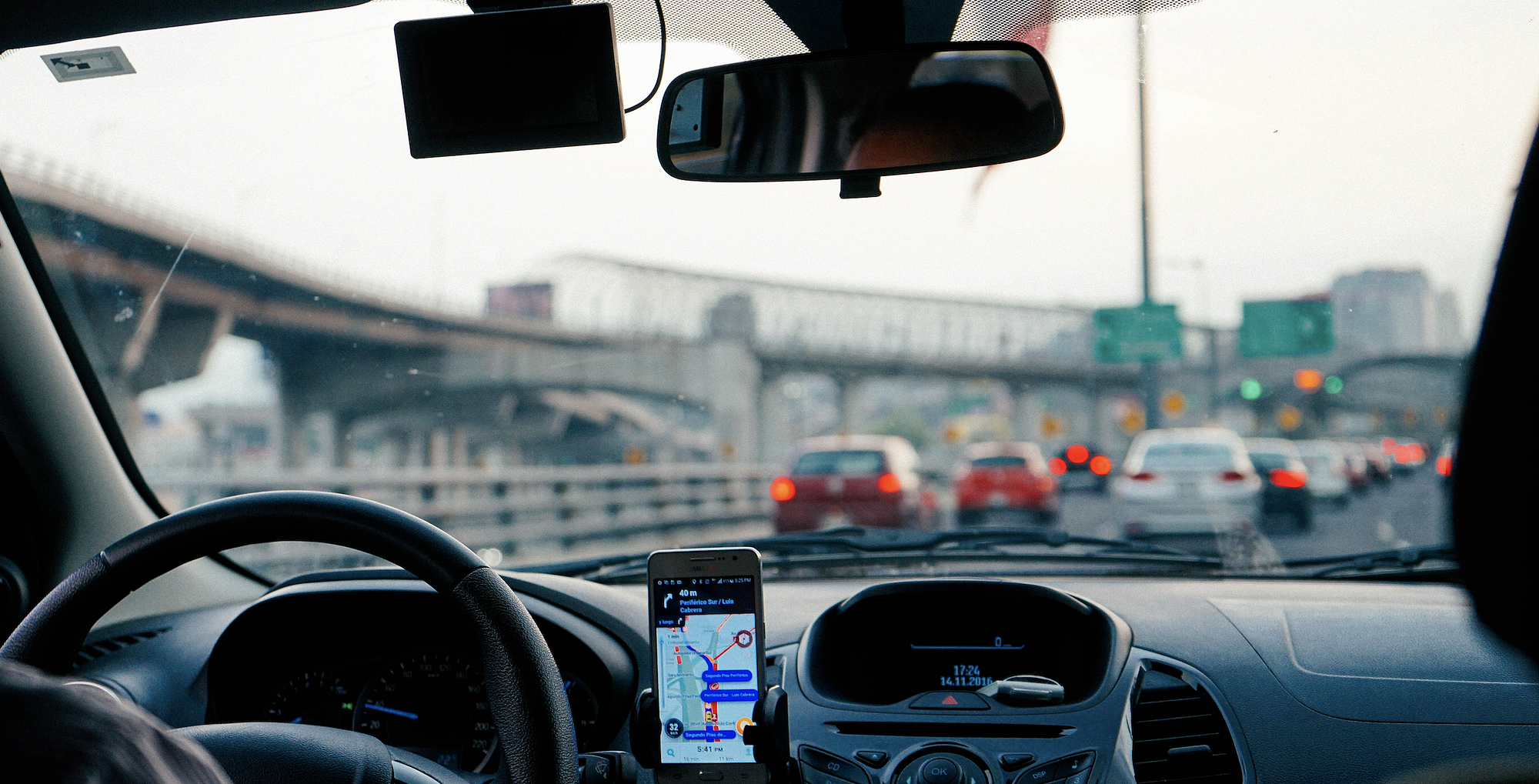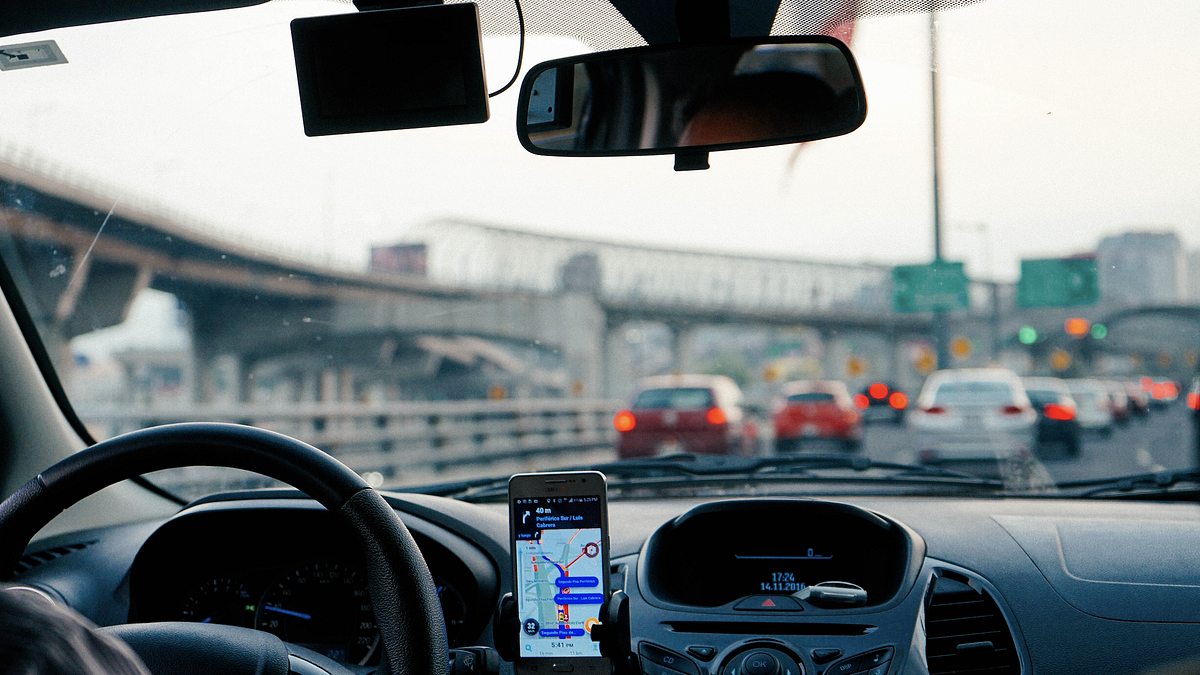
The day on which I decided to get my finances together was the day I embarked on a journey that would end in self-reflection, a deeper understanding of inequality in San Francisco, and my role in powering this inequality. When I signed up to drive for Uber, I expected some difficult interactions with passengers. But I soon noticed that many passengers gained more respect for me once they learned I was a part-time driver with a full-time job in the tech industry.
While I’d previously considered myself generally aware of inequality and classism, I didn’t realize how rampant they were until I was on the receiving end of it. Driving for Uber was a huge wake-up call.
Welcome to San Francisco, a city where everyone is welcome but not always equal.
San Francisco is a city that preaches equality with pioneering moves like the legalization of gay marriage, playing proud host to a sea of pink hats, and even declaring itself a sanctuary city. With every sip taken from a paper straw, Bay Area residents are reminded that they’re in a do-good city.
Don’t let that fool you, though. San Francisco has the highest income inequality in the country, a fact often forgotten by those who benefit most. This is a city whose grand gestures mask the day-to-day classism that one subset of residents imposes upon another.
Don’t believe me? Try driving for Uber, like I did.
Context is probably important, so here’s a bit about me and why I decided to drive for Uber: I’m a Cambodian immigrant who’s lived in the Bay Area for over 25 years. In my early twenties, I was laid off and accumulated tens of thousands of dollars in debt. I had just started my career, so I didn’t have any savings and no one to help bail me out of my financial mess. I lived off loans until I was able to find a job. In addition, I felt like I had done a disservice to all the Cambodians who weren’t able to come to America and have a chance at the American dream. As if this wasn’t bad enough, two years later I was laid off again.
These days, I work at a large tech company, complete with a state-of-the-art gym and juice bar. But my monthly loan payments are a constant reminder that I could lose it all at any moment, and I sure as heck don’t want to return to the days when I’d wait for unemployment checks just to make minimum payments on my credit card.
So I made the decision that at the end of each day, I would power down my laptop, pull a Clark Kent, and transform myself into your friendly neighborhood Uber driver.
Paying down my debt faster while also saving for a down payment on a house was suddenly feasible thanks to the gig economy. I saw this as putting in extra elbow grease, but I would finish shifts feeling like there was something wrong with being a driver. Even close friends questioned why I chose driving for Uber rather than consulting. The thought of being above any job was absurd to me, but it was implied that I could do better.
Driving for Uber, or any job that involves customer service, is a lesson in humility.
And then there were the passengers. Some were kind, but others would go out of their way to be rude to me. One day, I drove a passenger who started being incredibly condescending to me the second he got into my car. Eventually, he asked why a girl like me would drive for Uber, and I told him my reasons and that fortunately, it was a choice for me. He asked me about my job and became much nicer. That night, I saw that he had somehow found me on LinkedIn and sent me an InMail.
What prompted this attitude change?
After that, my side hustle became a social experiment.
I’m aware that there are many layers of privilege in being able to experience both sides of the coin and then do a retrospective about it. But the truth is that there are two sides of the coin to experience, so I felt a methodical pulse check of the Bay Area was worthwhile.
As a passenger, I don’t really enjoy talking to my driver. I never thought I was classist; I was just busy or simply not in the mood. And yet I remember certain instances in which I learned more about my driver and did feel I had misjudged them initially.
Why did I even have a right to judge in the first place?
Driving for Uber, or any job that involves customer service, is a lesson in humility. The customer is always right and, in this case, can even cut off your source of income with one bad rating.
On an average day, a passenger would hop in, ignore my “hello,” stare at their phone, and then hop out without a “goodbye.”
On a medium day, I’d be greeted with an eye roll or be waved off like a bug (yes, this happened).
On a bad day, a passenger would get in and say something rude to me in an attempt to put me in my place or imply that I’m incompetent when all I’d said was “Hey there!”
“I’m sorry for being rude earlier. You didn’t deserve that,” said one passenger.
These things, individually, aren’t overtly classist. However, the undertones of those initial interactions became more clear when contrasted with the treatment I got after explaining that I, too, have a full-time job.
Not all the rides were terrible. Some passengers were so nice that they single-handedly restored my faith in humanity. I even had some fun and drove around the UC Berkeley campus, getting a chuckle out of seeing the fear in soon-to-be graduates’ eyes when I told them that I had also graduated from Cal. Look at me now!
It was just a joke, but one that hinged on the inherent classism of the job.
When you drive for Uber, it’s assumed that you are of a certain intelligence, ability, and socioeconomic status, and it’s on you to prove that you’re not.
Eventually, I started conversations with the passengers who threw shade at me. I’d ask how their day was, and they’d roll their eyes and mutter something about work. I’d reply with something that showed I could relate, like, “Yeah, that happened to me the other day.”
Cue instant confusion.
The same people who were quick to tell me that I didn’t know what I was doing were even quicker to perk up once they realized we had things in common, like a full-time job in the tech industry.
I even had multiple people go so far as to apologize for their earlier treatment. “I’m sorry for being rude earlier. You didn’t deserve that,” said one passenger. When turning points like this happened, we’d move to some light conversation about work and maybe even venture on to discuss sports or politics. And then they’d ask the burning question, “So why are you driving for Uber?”
The loaded question was dripping with the implication that this job was beneath people like us.
So why am I going so far as to call this “classism?” The answer: because it really boils down to literal economic classes. There is always a layer of people who have high-paying jobs and then a layer of people who service them, such as baristas, cleaners, drivers, etc. The service industry exists nationwide, so what makes the Bay Area much more extreme?
Well, there are a lot of really rich people. I’ve known this for years, but I don’t think I fully understood what this meant. According to the Bloomberg analysis of U.S. Census data, San Francisco is leading the way when it comes to the rich-versus-poor income gap, with a staggering difference of $339.9K. San Jose came in at a close second in this nationwide survey.
What’s more astounding is that the income gap between the middle class and the super-rich of San Francisco is even higher, at $529.5K. This gap doesn’t account for the lower class.
If you dig deeper and focus on variables such as race, the Bay Area is also one of the leaders when it comes to year-over-year growth for earnings inequality between white residents and people of color. The Brookings Institution’s Metro Monitor revealed that in 2017, earnings for white Bay Area residents were 69% higher than earnings for people of color, with that gap widening by $2,588 that same year.
Much of this income inequality has to do with the tech industry — the industry responsible for building platforms such as Uber and, yes, providing jobs for Uber drivers in the first place.
Of course, correlation is not the same as causation. But the gap between the Bay Area’s economic classes continues to widen, causing a distinct difference in lifestyle and opportunities for residents. So while San Francisco’s economic reality may not be directly responsible for causing classist interactions between residents, it’s certainly not providing the infrastructure to reduce them.
Back to my social experiment. Were people treating me differently just because I was an Uber driver? It felt like they were. I decided to run a more controlled experiment to test this hypothesis via some simple A/B tests on Bumble.
The San Francisco Bay Area is at the dangerous intersection of innovation and inequality.
I created an account and set my occupation as “Driver” for Uber. After two months (yes, two long months), I matched with about eight people and received one message. Perhaps I just didn’t have the game from my early twenties. My ego was bruised.
However, upon updating my profile to include my day job, I matched with 10 people within the first hour, and the matches kept on coming. Next came the moment of truth: Would people finally find me worthy of a conversation? I kept my messages consistent with a simple “Hi, [Insert Name Here]!” Almost instantly, I got six replies.
My bio said that I enjoyed traveling the world, but only when removing “Uber Driver” from my profile did people suddenly find my wanderlust intriguing. My photos were the same, and my bio was the same, but my profession seemed to impact whether people wanted to engage with me.
I came out of this part of the experiment remembering the days when I used to dream of dating rich, successful men. It was another example of my being classist, and I just wasn’t self-aware enough to realize it.
I don’t think classism in the Bay is any big discovery. It’s something that’s understood but often not talked about. Classism is also not uniquely tied to one’s profession but is something also experienced on the basis of race and other factors. My specific example of interactions between Uber drivers and passengers is just scratching the surface of a much bigger problem.
This may seem like a no-shit-Sherlock moment to many, but I hope my experience provokes self-awareness in others and more deliberate actions. Sure, there are days when you’re just not in the mood to converse with a stranger. But it doesn’t hurt to check yourself and wonder if you’re choosing who gets your energy that day and the reasons behind that decision.
The San Francisco Bay Area is at the dangerous intersection of innovation and inequality. If we’re not careful, we’ll drive our beautiful city, famous for love and empathy, to lose its humanity.
Oh, and if you’re wondering, I still drive for Uber. See you on the road!







